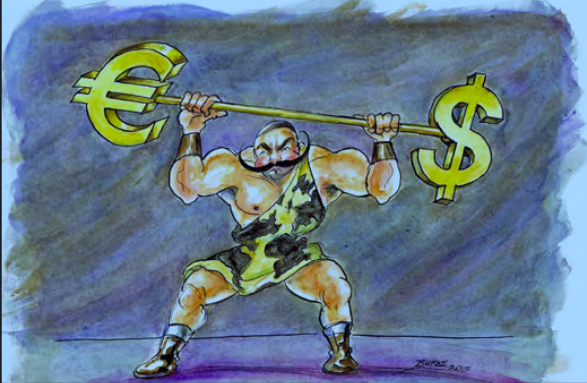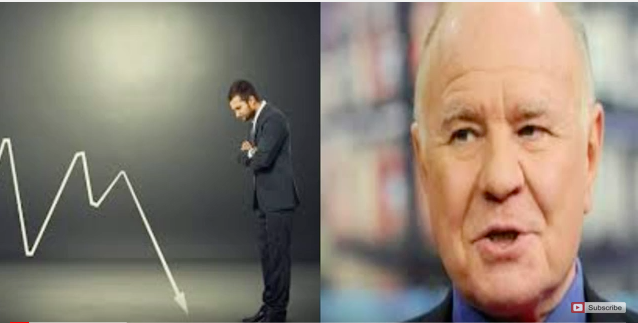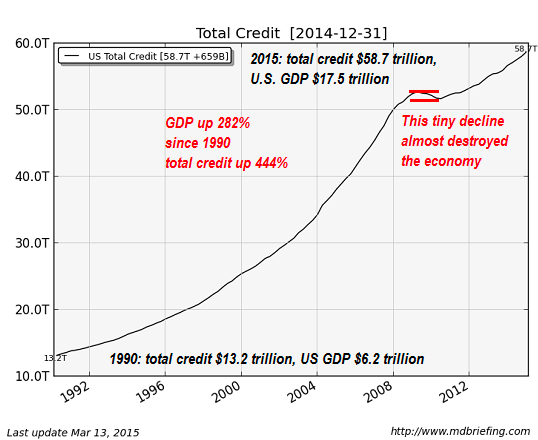Economic Outlook

‘The close of the paradigm’
The irony in this year’s batch of outrageous predictions is that some of them are “outrageous” merely because they run counter to overwhelming market consensus. In fact, many would not look particularly outrageous at all in more “normal” times – if there even is such a thing!
In other words, it has become outrageous to suggest that emerging markets will outperform, that the Russian rouble will be the best-performing currency of 2016, and that the credit market will collapse under the weight of yet more issuance. We have been stuck in a zero-bound, forward-guidance lowering state for so long that there exists a whole generation of traders who have never seen a rate hike from the Federal Reserve. As we close out 2015, it has been nearly 12 years (early 2004) since the US economy was seen as recovering strongly enough to warrant starting a series of hikes – and that series ended in early 2006, nearly ten years ago…..continue reading HERE
The economy, energy, China, Stock Markets, Gold and Silver and more are all covered in this interview with Marc Faber:
Marc Faber is an international investor known for his uncanny predictions of the stock market and futures markets around the world.Dr. Doom also trades currencies and commodity futures like Gold and Oil.

 You said the number one problem Europe faced – and the one that would crack Europe open – was immigration. Nationalism was rising, and you said immigration would be the final straw. That was at least five years ago, so it was a remarkably prescient thought. What led you to that insight?
You said the number one problem Europe faced – and the one that would crack Europe open – was immigration. Nationalism was rising, and you said immigration would be the final straw. That was at least five years ago, so it was a remarkably prescient thought. What led you to that insight?
GEORGE: Well, Europe is the second smallest continent in the world, second only to Australia, if you want to call the latter a continent. (My wife will kill me for that, since she’s Australian.) Europe has 51 separate nation states. The European Union’s purpose was to end conflict among these states by binding them together in peace and prosperity.
Consider this clipping from the August 1932 San Francisco Chronicle newspaper:
“Reduction of salaries of municipal employees and limitation of city positions to only one member of a household will be sought by (Supervisor) Adolph Uhl in two amendments to the San Francisco charter. The salary reductions would run from 2.5% for the lowest bracket to 25% on salaries of $500 a month or more.”
Thanks to the handy BLS Inflation Calculator we know that $500 a month in 1932 is the equivalent of $8,680 per month (about $104,000) a year.
Imagine the tempest of fury and outrage that would arise should this be proposed the next time local governments run short of funding. Nowadays, the calls would not be for sacrifices from the highly paid public servants but for tax increases of 25% to maintain public-servant wages and benefits while the private sector economy implodes.
This unwillingness to sacrifice for the greater good is now endemic. This is the result of two powerful social forces:
- The loss of any shared sense of purpose or social good worthy of sacrifice.
- The ascendancy of maximizing private gain by whatever means are availableas the primary purpose and goal of the Status Quo.
The dominance of maximizing private gain by whatever means are availableleaves the Status Quo brittle and fragile. Since everyone reckons any sacrifice should fall on someone else, the only possible result is disunity and bitter conflict over modest sacrifices that are too inconsequential to save the system from collapse.
Wishful thinking, mindless optimism and blind adherence to failed ideas also make the Status Quo brittle and fragile. As Michael Grant noted in his book The Fall of the Roman Empire:
There was no room at all, in these ways of thinking, for the novel, apocalyptic situation which had now arisen, a situation which needed solutions as radical as itself. (The Status Quo) attitude is a complacent acceptance of things as they are, without a single new idea.
This acceptance was accompanied by greatly excessive optimism about the present and future. Even when the end was only sixty years away, and the Empire was already crumbling fast, Rutilius continued to address the spirit of Rome with the same supreme assurance.
This blind adherence to the ideas of the past ranks high among the principal causes of the downfall of Rome. If you were sufficiently lulled by these traditional fictions, there was no call to take any practical first-aid measures at all.
A dependence on debt, low interest rates and financial legerdemain also render the Status Quo extremely fragile when the debt become unpayable and low interest rates no longer boost additional borrowing.
The wishful thinking is that we can borrow limitless sums ad leave the debt burden on our children and grandchildren with no consequences. But once the system is dependent on massive borrowing, it becomes acutely sensitive to default, as consumption collapses once consumers can no longer borrow to consume, and asset bubbles engorged by debt-assets (bonds, student loans, mortgages, subprime auto loans, etc.) burst.
Lest you think this implosion from a modest decline in debt and new borrowing is preposterous, please examine this chart of total credit: that tiny wobble in 2008 very nearly collapsed the entire global financial system.
Any modest reduction in debt, tax revenues, consumption or new borrowing will bring the entire Status Quo crashing down. This is the bitter fruit of rampant financialization and the ascendancy of maximizing private gain by whatever means are available.
Regards,

Governments have embraced Marx & Keynes because they argued that government had the RIGHT and the CAPACITY to manipulate society by the economy creating Utopia eliminating the business cycle. They create economic disasters, blame others, and then start wars to get out the mess. It is never our interests at stake – only their’s. The Free Market always wins and this age of Socialism where they decide how to spend your money (usually on themselves), is coming to an abrupt end just as did communism. This balancing act has been a disaster because they assumed they had the power to control something they have no clue about how it even functions. Sorry but Smith and Schumpeter win.















